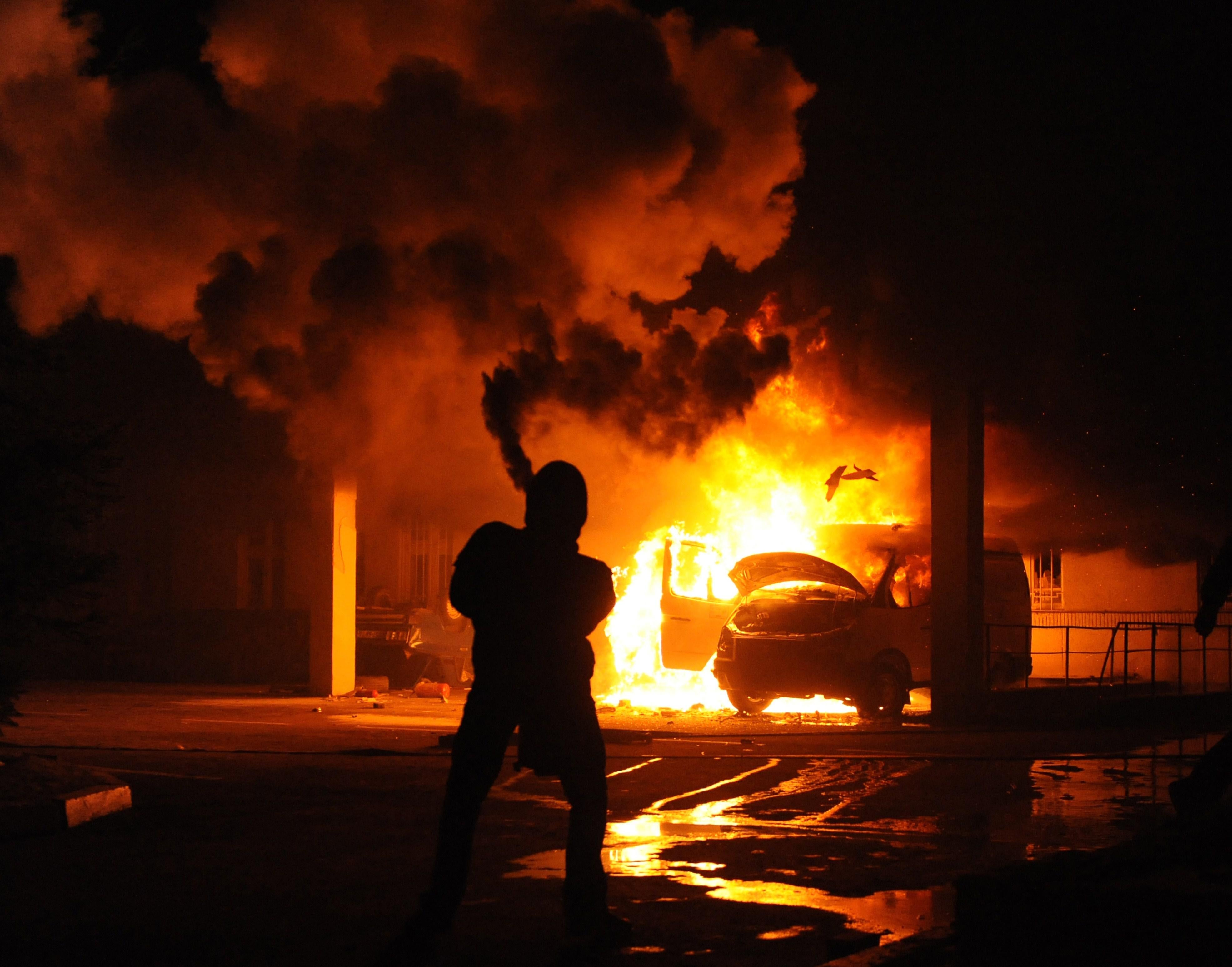The idea would have seemed unthinkable a few days ago, but a number of key players and observers in Ukraine’s political turmoil are now openly invoking the prospect of a civil war in the country, including former President Leonid Kravchuk, senior Russian Duma members, the mayor of the eastern city of Donetsk, the pro-Russian government of Crimea, and Polish Prime Minister Donald Tusk.
With the exception of Tusk, those actors are all broadly in the pro-government camp, and one could dismiss this talk as an effort to discredit the opposition. But a number of developments, including those outside Kiev, make the prospect seem more realistic. Protesters reportedly seized government buildings, including police stations, army barracks, and the local branch of the Interior Ministry, in the western city of Lviv, which was already slipping out of the government’s control before yesterday’s events, and footage has emerged of soldiers surrendering to protesters, though they may have been conscripts who were already supporters of the opposition. Lawmakers in the region say they will no longer take orders from the central government. Protesters have also reportedly blocked a crossing at the Polish border.
Volodymyr Fesenko, head of the Penta Political Analysis Center in Kiev, tells the Associated Press, “The violent scenario is a tragic and irreversible decision. … Western Ukraine may even declare its insubordination. Any attempt to restore order in western Ukraine by force will start a civil war.”
This still seems like a pretty unlikely scenario, even after yesterday’s tragic events. Ukrainians may be split almost down the middle on whether they support the protests, but few support the use of force against them. Also, despite the country’s clear split between the Catholic, Ukrainian-speaking west and Orthodox, Russian-speaking east, support for the country’s independence has actually increased over the years, even in the east. (Crimea, which is majority-ethnic-Russian, may be something of an outlier.) And while the general ideological sentiments of the two camps are clear, it also seems like actual enthusiasm for Yanukovych is fairly thin, even among government supporters, and the opposition’s leadership is divided between three men—Vitali Klitschko, Oleh Tyahnybok, and Arseniy Yatsenyuk—all of whom carry some fairly serious flaws as potential leaders of a long-term nationalist uprising.
While a Czechoslovakia- or (worse) Yugoslavia-style split appears unlikely, it’s clear that a Rubicon of some sort was crossed yesterday. This government has entirely lost legitimacy—probably permanently—with a large segment of the population. European sanctions, combined with Russia’s financial lifeline, may only harden Yanukovych’s position. It’s not clear yet whether we’re entering a revolutionary situation or a prelude to deepening “Belarus-style autocratic rule,” but either way, it seems unlikely to resolve itself without more bloodshed.
Also in Slate, stunning photographs from the violent clashes in Kiev.
